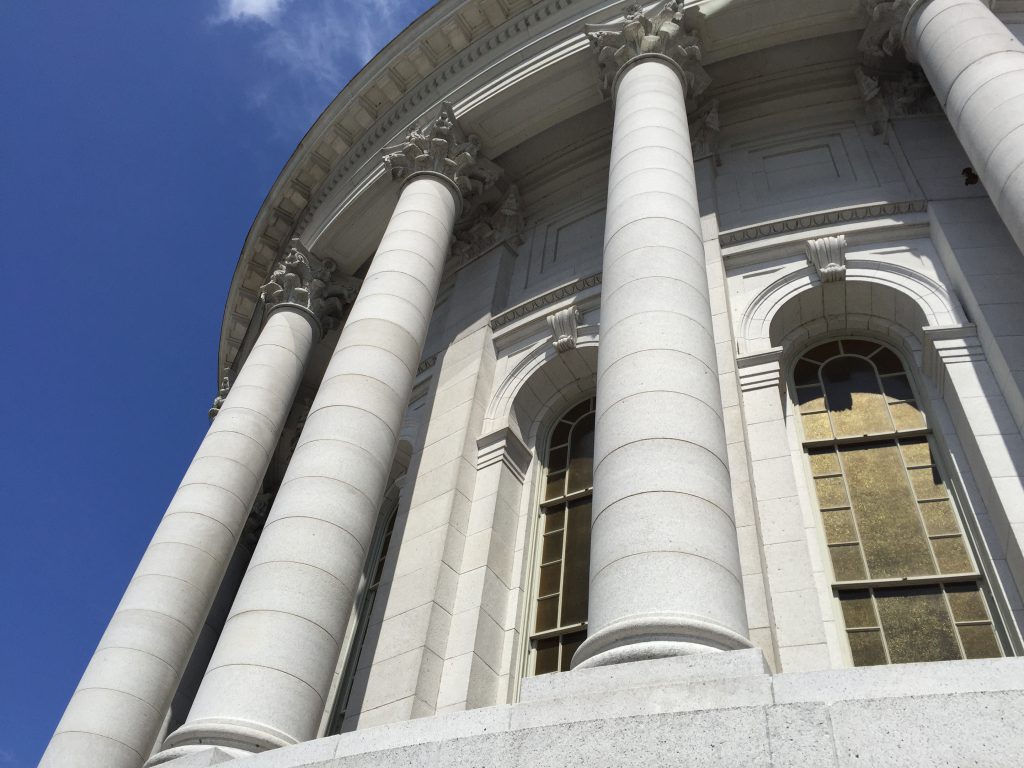Legislation Limits State Asset Liquidation for Medicaid Bills
Democratic lawmakers would limit what assets state can grab under Medicaid Estate Recovery.
People who go on Medicaid to cover long-term care must first divest themselves of most of their assets, but they get to keep a home and an automobile.
When they die, however, even those assets can be stripped in court to repay the federal/state Medicaid program.
It’s “essentially a death tax on the poor,” Sen. Chris Larson (D-Milwaukee) said Wednesday as he offered draft legislation to cut back the state’s ability to replenish Medicaid when a recipient dies.
Medicaid estate recovery applies to people who have gone on the health insurance program for the poor at the age of 55 or older, or people in intermediate or skilled nursing homes who are not likely to return home. It’s not applied to other Medicaid recipients for whom the program covers medical care.
Since 1993, the federal government has required states to pursue Medicaid estate recovery from a deceased recipient’s probate assets: assets in the recipient’s name alone. The federal government receives 60% of what is recovered while the state gets the remaining 40%.
Most states, including Michigan and Illinois, haven’t added non-probate assets to Medicaid recovery, Larson said. If enacted, the draft bill that he and Rep. Jonathan Brostoff (D-Milwaukee) are circulating would add Wisconsin to that list.
While they would like the federal government to eliminate Medicaid estate recovery completely, Larson said, with their proposal, “we’re seeking to make sure it’s only as cruel as federally required to be.”
Larson said that while about half of Wisconsin’s annual Medicaid budget goes to long-term care, estate recovery recoups half of 1% of those long-term care costs.
For such a small return, estate recovery has “a significantly negative impact on the poorest segment of the older adult population,” said Janet Zander of the Greater Wisconsin Agency on Aging Resources.
The most vulnerable include people who can’t afford long-term care insurance and those who can’t afford a lawyer to help them plan their estates so that assets are protected while they remain eligible for Medicaid, Zander said.
Instead of saving the state and federal government money, that situation could wind up being much more expensive for taxpayers. By forgoing lower-cost care early, elderly people could be more vulnerable to an emergency later, requiring more costly treatment. They might also put “an increased burden on family members to meet all the care needs of their loved ones,” Zander added
When Wisconsin included non-probate assets in 2014, the state exposed joint checking accounts and life insurance policies benefiting other family members to being depleted in the recovery process. For the surviving family members, “I think that comes as a real surprise to people who at least thought there would maybe be a life insurance [payment] that would help them to use for their needs or their other family members’ needs,” Zander said.
According to a report on the practice produced in April by the advocacy group Justice in Aging, “The burden of estate claims falls disproportionately on economically oppressed families and communities of color, preventing families from building wealth through home ownership, which has been historically denied to communities of color through discriminatory public policy.”
Justice in Aging advocates ending Medicaid estate recovery entirely.
Paul Sturgul, who practices elder law in Hurley and has clients in Michigan as well as Wisconsin and who took part in Larson’s press conference, said the estate recovery program sets Medicaid apart from other government services.
“We send our children to public schools, but when we die, our estate doesn’t get a bill for the tuition,” said Sturgul. “Not only does one have to become impoverished to receive Medicaid benefits, but [after death] the state can then take all of your remaining assets — most notably, your home.”
Draft bill would limit what state can claw back when Medicaid recipients die was originally published by the Wisconsin Examiner.






















I’m guessing rethugs will hate this because it doesn’t punish the poor hard enough.